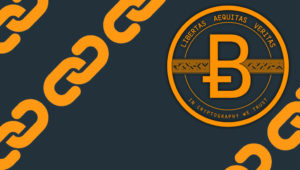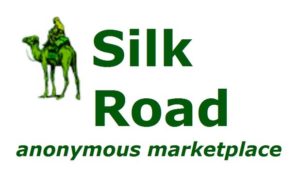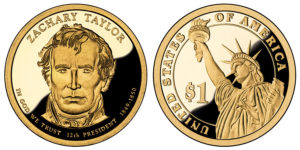 One of my rules of writing is to ignore journalistic fads. I’ve considered Bitcoin since 2013 to be a complete red herring, a finance-journalism fad that has no bearing on real things, real life, and real people.
One of my rules of writing is to ignore journalistic fads. I’ve considered Bitcoin since 2013 to be a complete red herring, a finance-journalism fad that has no bearing on real things, real life, and real people.
Technology people – FWIW I am not one of these – have long been excited about Bitcoin, and a couple of TedTalks from this past summer claimed that Bitcoin is “The Future of Money” and “Changing Money and Business.”
While I think that’s bananas, I try my best to be open to new ideas. I’m going to break my previously self-imposed ban on writing about Bitcoin and consider the idea that there’s something real there worth paying attention to.
Invented in 2008 by an anonymous programmer (or programmers) known by the pseudonym Satoshi Nakamoto, Bitcoin hit the mainstream financial and technology press in 2013. Bitcoins are a sort of nation-less currency created and “earned,” or “mined,” through a computer process of solving a series of increasingly complex cryptographic puzzles. As a store of value as well as a medium of exchange, Bitcoins could theoretically replace or compete with dollars, or gold, or any other widely accepted currency.
Technologists point to the advantage of the technology underlying Bitcoin – known as blockchain – which allows decentralized computers to recognize and verify transactions without having to go through a traditional bank.
Bitcoins – and other cryptocurrencies, of which there are many less well-known variants – appeal to people who like the idea of currencies free from government control, and free from the intermediation of financial institutions.
For example, whenever I pay for gas with my credit card, or withdraw money from an ATM, or automatically invest in index mutual funds, I leave an electronic record of the transactions with my financial institution, which both collects fees from my activity and collects data on my financial life. I live with those fees and that data collection because it’s super-convenient to me, and because I’m not personally paranoid about those institutions tracking my activity.
But if you hate the idea of government control of things or your activity, then Bitcoins – or related crypto-currencies – become potentially more attractive.
Early Adopters
Some of the earliest adopters of Bitcoin were people who needed to purchase things online without using trackable currency, like consumers of child pornography, assassination-services, or drugs. I wasn’t an early adopter.

Since 2015 until now, Bitcoin exchanges have reported up to 80% of activity driven by Chinese nationals, presumably as a way to escape currency and capital controls in their country. The Wall Street Journal recently reported that three Chinese exchanges account for 98% of Bitcoin transactions in the past month. That makes sense for people trying to squirrel their money away from the eyes of Chinese authorities, but again, is not my scene.
Bret Piatt, the CEO of San Antonio-based Jungle Disk, which offers small-business data security, notes that many people’s first encounter with Bitcoin these days happens when hackers – often based in another country – remotely seize a company’s data and hold it ransom until paid in Bitcoin. Piatt says his company can’t advise clients with how to deal with ransomware hackers, but he does point out that purchasing Bitcoin to pay the ransom is just a few Google clicks away.
The beauty of Bitcoin for these hackers, again, is its unlinking from governments and banks.
All of these adaptive uses for this cool new “future of money” tend to leave me feeling confirmed that Bitcoin is worthy of ignoring, as I have up until now.
Reasons to care
So what’s the positive case for paying attention?
From what I can tell, Bitcoin offers three main advantages:
- A reminder of what money is, and isn’t
- A vehicle for blockchain-technology adoption in transactions
- A tool for creative people to control and benefit from their creation
So remind me – What is money again? Bitcoin and other crypto-currencies – by their nature newly invented virtual, digital creations – show us that “money” is a completely illusory, socially-constructed idea.
There’s nothing inherently valuable about coins (or historically, stones or shells or gold) or the digital stores of value we depend on every day – they only have value because we all engage in a collective fiction that they have value.
Bitcoin – a clever creation of computer code – is just as theoretically legitimate as a US dollar. Today I find Bitcoin inconvenient and dollars convenient, but that doesn’t always have to be true in the future? As a side note and (maybe?) interesting fact, I personally pay for most stuff in $1 coins and $2 bills, which nobody else finds convenient, but that’s probably just because I like the attention it brings at the coffee shop.
 What do I mean by the adoption of blockchain technology? I hardly know myself, but I’ll take a stab at it. Decentralized computers that can simultaneously recognize and confirm identities and payment might make financial intermediation simpler, or even unnecessary.
What do I mean by the adoption of blockchain technology? I hardly know myself, but I’ll take a stab at it. Decentralized computers that can simultaneously recognize and confirm identities and payment might make financial intermediation simpler, or even unnecessary.
One prosaic example could be the elimination of notaries. Notaries are meant to verify, via signature and identification check, that I am who I say I am, for the comfort of someone on the other side of a transaction, so the other side won’t be defrauded. More ambitiously, Don Tapscott claims in his TedTalk that blockchain could be used to create a more trustworthy global land title system, especially useful for the estimated 70 percent of the world with uncertain systems for proving who owns what properties. Tapscott also sees blockchain disrupting the $600 billion per year cross-border payments industry, which takes high fees and multiple days to do something that blockchain can do for nearly free, immediately. Neha Narula, in her TedTalk on the future of money, says the blockchain will allow each of us to control our own personal, financial, or health data, which we could then sell to the highest bidder.
Sigh. That makes me regret I’ve been giving all that personal data away for free, to Facebook, since 2007.
 Finally, Tapscott claims that the decentralized nature of blockchain technology will mean that creative people like artists and musicians can own and sell their work without giving up control to financial intermediaries. The computers that form the blockchain can allow a creator complete control of her work in exchange for direct payment. Silly me, I thought that’s kind of what PayPal was for, but you can see how stuck in 2002 I really am.
Finally, Tapscott claims that the decentralized nature of blockchain technology will mean that creative people like artists and musicians can own and sell their work without giving up control to financial intermediaries. The computers that form the blockchain can allow a creator complete control of her work in exchange for direct payment. Silly me, I thought that’s kind of what PayPal was for, but you can see how stuck in 2002 I really am.
Will somebody please show me how to put this post on the blockchain to make it rain Bitcoins? I’m so excited.
A version of this post ran in the San Antonio Express News.
Post read (443) times.


